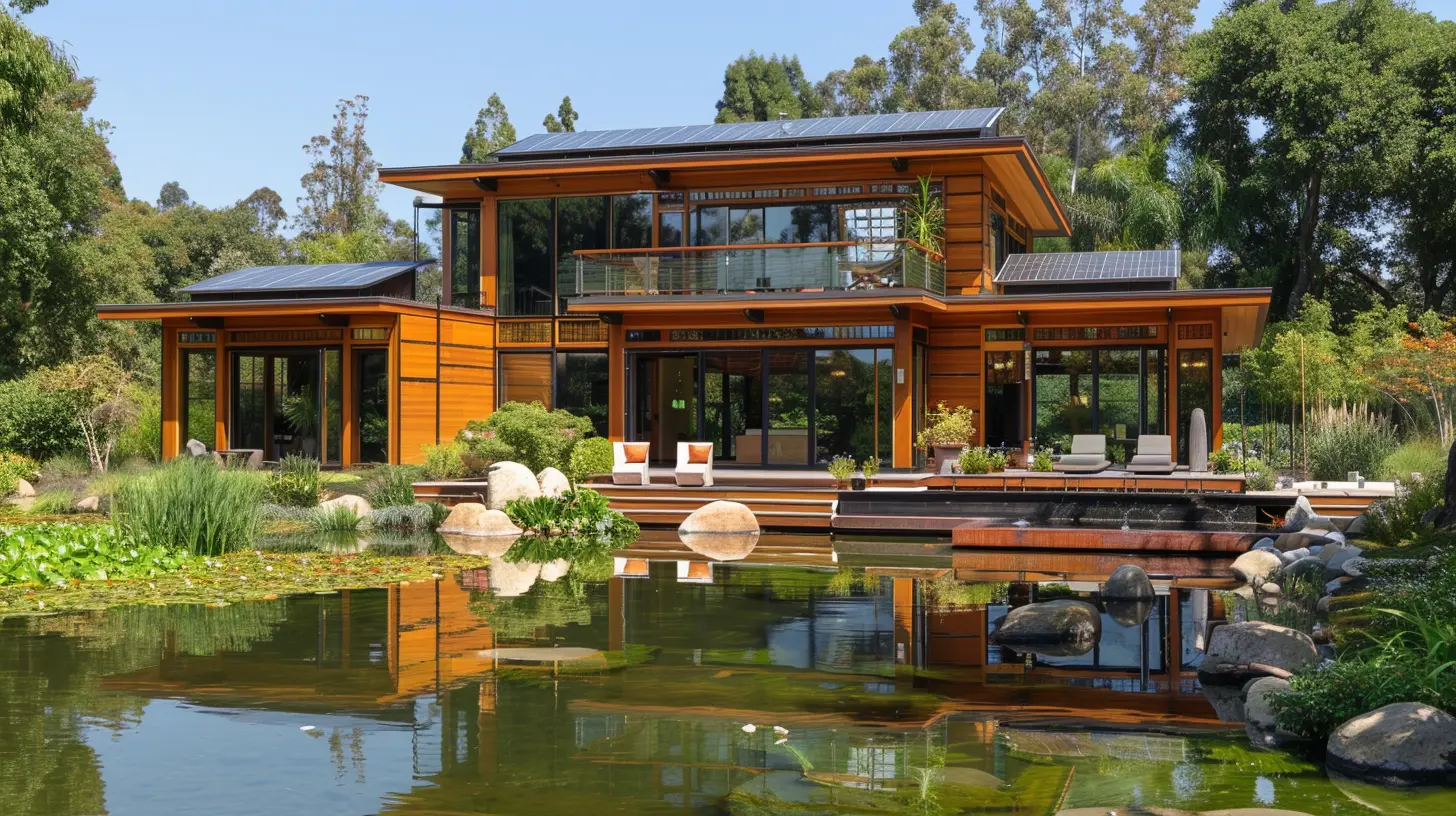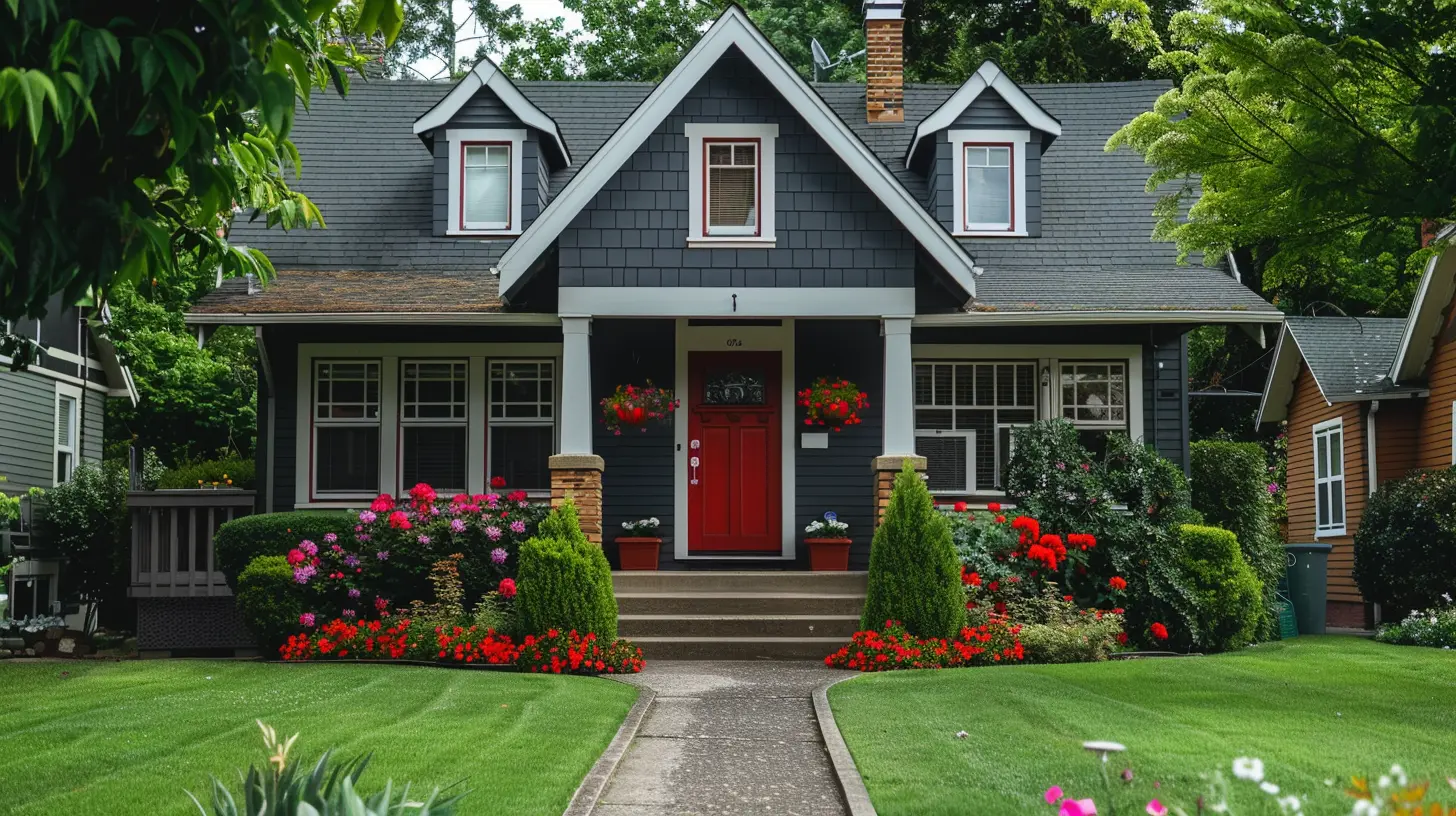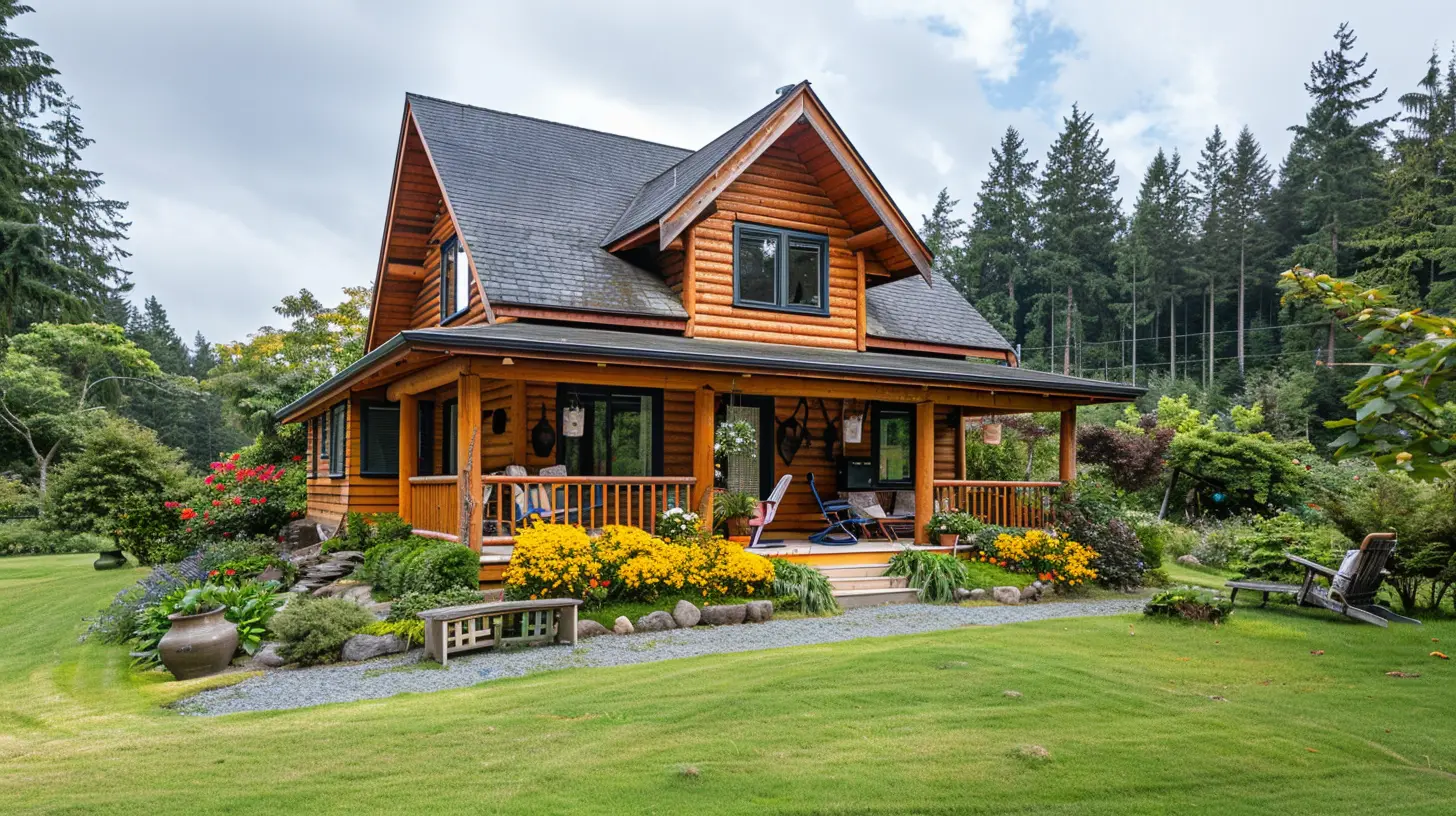Low-Impact Living: Eco-Friendly Home Maintenance Tips
1 November 2025
Living a sustainable lifestyle doesn’t mean turning your home into an off-grid cabin in the woods (although, if that’s your dream, go for it!). Small changes in home maintenance can have a massive impact on the planet—and your wallet.
So, if you're ready to reduce your carbon footprint while keeping your home in tip-top shape, you're in the right place. Let’s dive into some simple yet effective eco-friendly home maintenance tips that’ll help you live greener while still enjoying the comforts of modern life.

Why Low-Impact Living Matters
Before we get into the nitty-gritty of eco-friendly home maintenance, let’s talk about why it’s important.Every home has an environmental footprint—whether it's from the energy we use, the water we consume, or the materials we discard. By making small, intentional choices, we reduce our impact on the planet while also saving money on utilities and repairs.
Plus, if you ever plan to sell your home, eco-friendly features can be a major selling point for buyers who prioritize sustainability.
Now, let’s jump into some practical ways to keep your home running efficiently while being kinder to the environment. 
1. Upgrade to Energy-Efficient Appliances
Old appliances are energy hogs. They use more electricity and water than necessary, which means higher bills for you and a bigger footprint for the planet. Consider swapping out your outdated appliances for energy-efficient models with an ENERGY STAR rating.Pro Tip:
If replacing appliances isn’t in the budget right now, at least be mindful of how you use them. Air-dry dishes instead of using the drying cycle on your dishwasher, wash clothes in cold water, and unplug devices when they’re not in use.
2. Switch to Non-Toxic Cleaning Products
Most store-bought cleaning supplies contain harsh chemicals that are not only bad for the environment but also harmful to your health. The good news? You don’t need them to keep your home spotless.Eco-Friendly Alternatives:
- White vinegar + water: Great for glass and countertops.- Baking soda: A natural deodorizer and scrub.
- Lemon juice: Perfect for cutting grease and freshening up surfaces.
There are also plenty of eco-friendly cleaning brands that offer plant-based, biodegradable products. Check labels carefully and avoid anything with synthetic fragrances, ammonia, or bleach. 
3. Reduce Water Waste
Water is a precious resource, and we often use way more than we need. A few simple changes in your home can lead to substantial water savings.Ways to Conserve Water:
- Fix leaks ASAP – A dripping faucet can waste hundreds of gallons of water per year.- Install low-flow showerheads and faucets – These reduce water usage without sacrificing pressure.
- Use rainwater for outdoor watering – Setting up a rain barrel is an easy way to water plants for free.
- Only run full loads – Whether it's the dishwasher or washing machine, make sure you’re maximizing each use.
Small tweaks like these can significantly cut down your household’s water waste.
4. Switch to LED Lighting
Still using old incandescent bulbs? It’s time for an upgrade.Why LED Bulbs Are Better:
- Use up to 80% less energy than traditional bulbs.- Last much longer (some up to 25,000 hours).
- Emit less heat, which helps lower cooling costs in the summer.
Lighting may seem like a small thing, but considering how many bulbs are in your home, switching to LEDs can drastically lower your electricity use over time.
5. Embrace Natural Ventilation
Instead of cranking up the AC, why not let nature do some of the work?How to Keep Your Home Naturally Cool:
- Open windows strategically – Open windows on opposite sides of your home to create a cross breeze.- Use blackout curtains – These help block heat during the summer.
- Utilize ceiling fans – They use way less energy than air conditioning.
By maximizing natural airflow, you can keep your home cooler while reducing energy costs.
6. Maintain Your HVAC System Regularly
A well-maintained HVAC system runs more efficiently, meaning it uses less energy to heat and cool your home.Simple HVAC Maintenance Tips:
- Replace air filters every 1-3 months.- Get a professional tune-up at least once a year.
- Keep air vents clean so your system doesn't work harder than necessary.
Routine HVAC maintenance not only helps the environment but also extends the lifespan of your system—saving you money on costly repairs.
7. Use Sustainable Materials for Home Repairs
When it’s time for home repairs or upgrades, consider sustainable materials that are both durable and eco-friendly.Eco-Conscious Building Materials:
- Bamboo flooring – A highly renewable alternative to hardwood.- Recycled glass countertops – A unique and sustainable choice.
- Salvaged wood – Gives a rustic charm while reducing waste.
Sustainable materials not only reduce environmental impact but also add character and uniqueness to your home.
8. Cut Down on Single-Use Plastics
Single-use plastics are one of the biggest contributors to global pollution. While eliminating them entirely may seem daunting, small swaps can make a difference.Easy Plastic-Free Swaps:
- Use reusable cloths instead of paper towels.- Store food in glass containers rather than plastic wrap or bags.
- Opt for bar soap and shampoo bars instead of plastic bottles.
Over time, these small changes add up and help reduce unnecessary waste.
9. Compost Organic Waste
Food waste is a huge issue, but composting is an easy solution. Instead of throwing food scraps in the trash, composting turns them into nutrient-rich soil for gardening.Compostable Items:
- Fruit and vegetable peels- Coffee grounds
- Eggshells
- Yard waste (leaves, grass clippings)
Even if you don’t have a garden, some cities offer composting programs or collection services. Keeping food waste out of landfills helps reduce methane emissions, a major contributor to climate change.
10. Grow Your Own Food (Even in Small Spaces!)
Imagine stepping outside to grab fresh herbs, tomatoes, or strawberries—it doesn’t get much more sustainable than that!Even if you don’t have a big yard, you can still grow food in small spaces:
- Windowsill herb gardens for basil, mint, and cilantro.
- Vertical gardens for lettuces and strawberries.
- Container gardening for tomatoes and peppers.
Growing your own food reduces packaging waste, cuts down on grocery store trips, and provides fresh, organic produce right from your home!
Final Thoughts
Low-impact living isn’t about perfection—it’s about progress. Every eco-friendly choice, no matter how small, contributes to a healthier planet and a more sustainable lifestyle.So, whether you start with energy-efficient appliances, switch to LED bulbs, or simply fix that leaky faucet, know that your efforts matter. A greener home is within reach—one step at a time.
Ready to get started? Pick one tip from this list and make a change today. Your planet (and future self) will thank you!
all images in this post were generated using AI tools
Category:
Sustainable HousingAuthor:

Travis Lozano
Discussion
rate this article
1 comments
Delilah Parker
Eco-friendly? More like eco-fabulous! Who knew saving the planet could look this chic? Time to trade that toxic paint for some green glam—your home will thank you!
November 2, 2025 at 5:23 AM

Travis Lozano
Thank you! Embracing eco-friendly choices can definitely add a stylish touch while benefiting the planet. Let's keep our homes beautiful and sustainable!


